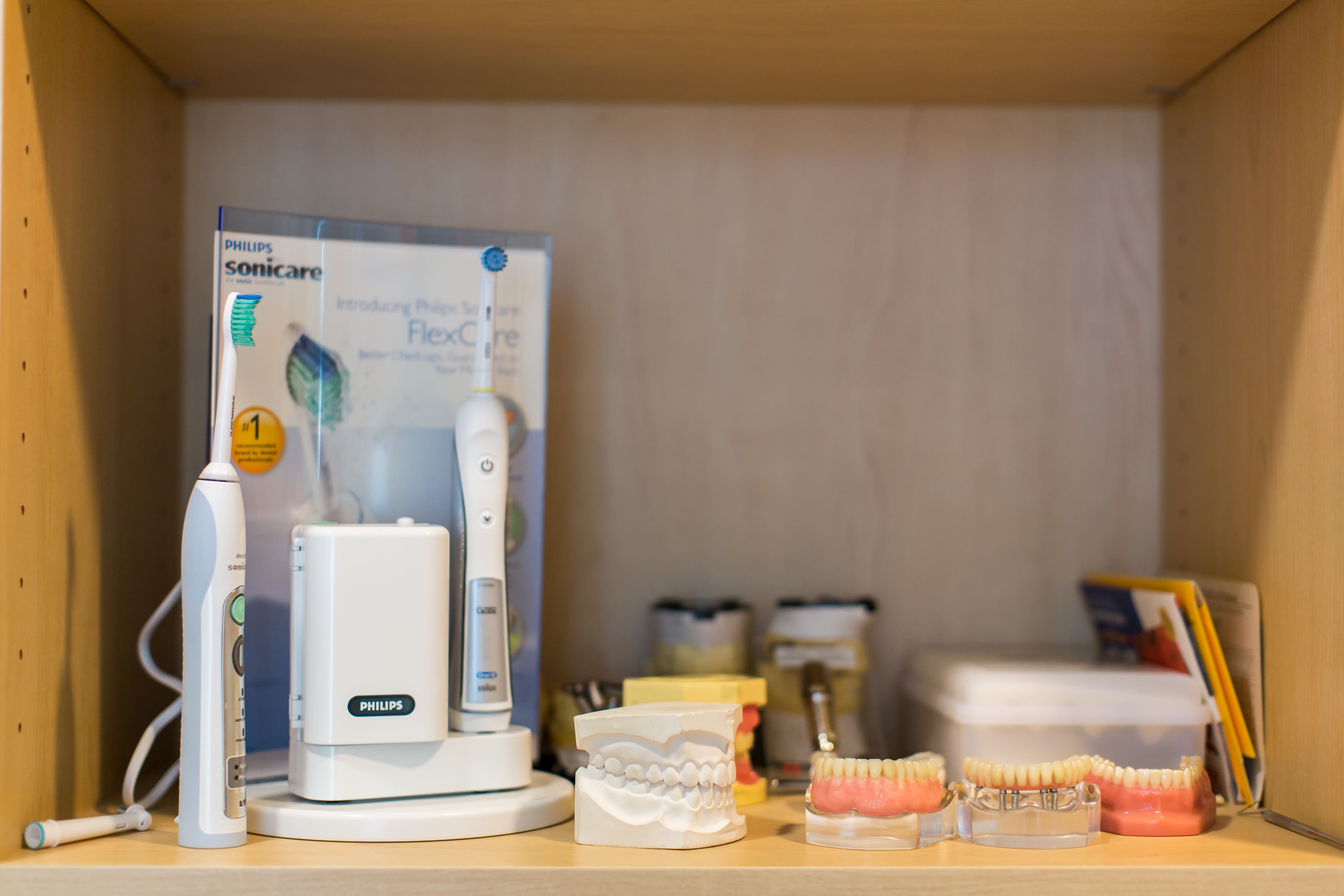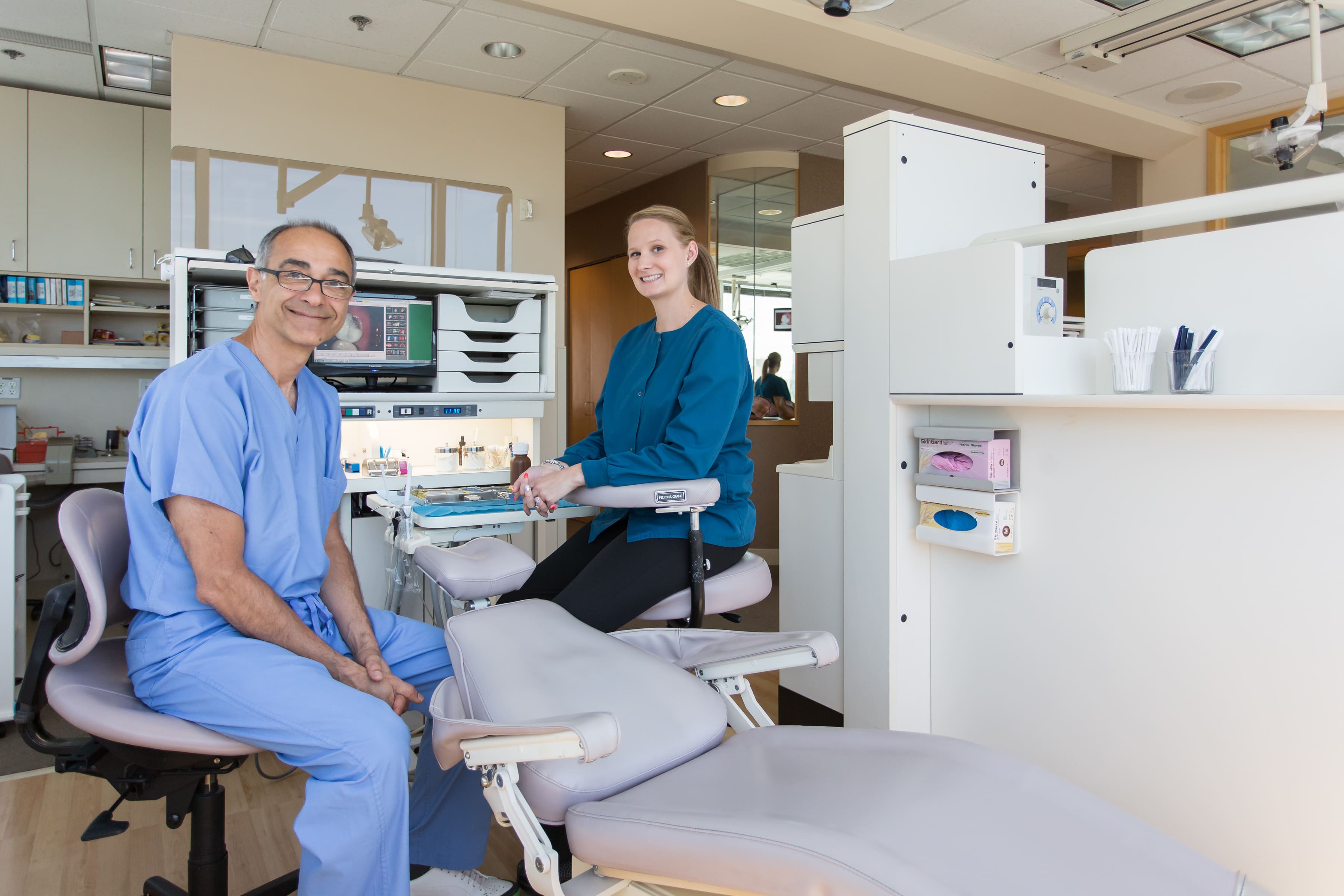Call Us Today
Gum Disease
How do I know if I have Gum Disease?
Periodontal disease – better known as gum disease – is an infection caused by the accumulation of plaque or tartar. Surprisingly, it is not always painful. In fact, most cases involving gum disease involves painless symptoms. While you cannot feel the effects of this infection, you can most definitely spot them if you’re aware of what to look for.
It’s wise to conduct a self-examination of your teeth occasionally. For example, have you found that your gums are swollen, red, or bleed often? Do you suffer from bad breath or an unpleasant taste in your mouth that won’t go away?
Other symptoms to look for include:
- Sensitive gums – this includes gums that bleed easily when flossing or brushing teeth.
- Loose teeth
- Strong pains while chewing food
- Visible pus around teeth/gums
- Separation of teeth
- Receding gums
If you answered yes to any of these symptoms, it’s best to visit our office at your earliest convenience. If it’s gum disease, you want to treat it as soon as possible to avoid further complications.
What Causes Gum Disease?
Periodontal disease is a result of improper oral care that can eventually lead to tooth loss and potentially destroy the jawbone. More specifically, this infection is caused by the accumulation of plaque on teeth. This sticky film substance needs to be removed daily to prevent gingivitis – a condition that causes gum tissue to become inflamed.
Gingivitis involves the beginning stage of gum disease and can easily be treated by flossing and brushing teeth every day. However, if ignored it will lead to periodontitis and the effects can be irreversible. Effects include the loosening or falling of teeth.
Other factors that contribute to gum disease include:
- Smoking
- Aging
- Diabetes
- Heightened hormones
- Crooked teeth
- Pregnancy
Fortunately, if caught early enough this infection is treatable. If left unattended it can lead to severe consequences involving tooth decay, surgery or loss of tooth.
How to Prevent Gum Disease
The best way to avoid being infected with gum disease is flossing and brushing teeth daily. In addition, having teeth examined and professionally cleaned every six months helps maintain a healthy, radiant smile. Aside from regular dental checkups, the best way to reduce the chances of acquiring gum disease is by practicing good oral care at home at all costs.

How to Treat Gum Disease
Treatments consist of improved dental hygiene practices and professional assistance. Every case is different, however, in most cases the following treatments are available to treat gum disease:
- Deep cleaning
- Surgical debridement
- Gum graft
While none of these options seem appealing, it’s important to act quickly before further damage occurs. If medicine and medical procedures don’t work, surgery will be required. Remember, it’s best to brush and floss teeth daily to reduce the possibility of ever being a victim of gum disease.
Contact Us
Anoosh Afifi Comprehensive Dentistry is dedicated to giving you a smile you will love. Making patients aware of the importance of oral health is our top priority to ensure healthy teeth and avoid infections such as gum disease. Feel free to contact us for more information about our services or to schedule an appointment. Call us today!

For more information on Gum Disease, arrange an appointment for consultation.


Schedule an Appointment Today
Treat and Prevent Gum Disease. Call our office to for a consultation appointment for more information about Gum Disease at (206)-323-9000. We'll help you achieve your smile goals!